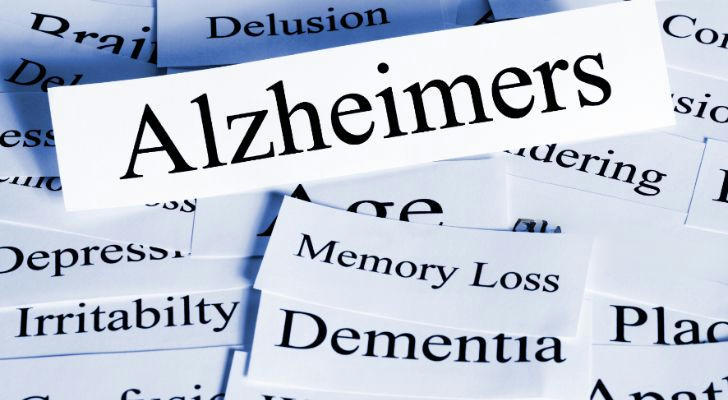Alzheimer’s vs. Dementia: The Shocking Truth Every Family Must Know to Avoid Life-Altering Mistakes
Did you know 1 in 3 seniors dies with Alzheimer’s or another dementia – more than breast cancer and prostate cancer combined? Yet 67% of caregivers can’t explain the difference between Alzheimer’s and dementia. This critical knowledge gap could mean delayed diagnoses, improper care, and devastating family conflicts. Let’s cut through the confusion forever.
The Brain Fog Battle: Why Definitions Matter
Dementia Isn’t a Disease – It’s a Highway
- Dementia = umbrella term for symptoms affecting memory, thinking, and social abilities
- Alzheimer’s = specific disease causing 60-80% of dementia cases
- Think of dementia as "heart disease" and Alzheimer’s as "coronary artery blockage"

The 7 Types of Dementia (Yes, SEVEN!)
| Type | % of Cases | Key Characteristics |
|---|---|---|
| Alzheimer’s | 60-80% | Plaques/tangles, gradual memory loss |
| Vascular Dementia | 10% | Stroke-related, stepwise decline |
| Lewy Body | 5-10% | Visual hallucinations, Parkinsonism |
| Frontotemporal | 5% | Personality changes under age 65 |
| Mixed | 10% | Alzheimer’s + vascular damage |
| Parkinson’s Dementia | 2-5% | Movement issues first, then cognition |
| Reversible Causes | <1% | Thyroid issues, vitamin deficiencies |
Shocking fact: Only 1% of dementia cases are fully reversible – which is why early testing is crucial.
Red Flags: How Symptoms Differ (and Why Doctors Miss Them)
The Alzheimer’s Pattern: Memory First
- Forgets recent conversations → repeats questions
- Loses track of dates/payments → gets lost in familiar areas
- Struggles with recipes → leaves stove on
- Mood/personality changes → paranoid about "stolen" items
Vascular Dementia: The Rollercoaster
- Sudden declines after mini-strokes ("Why is Dad worse this week?")
- Problem-solving fails first ("Mom can’t operate the TV remote anymore")
- Physical symptoms: poor balance, limb weakness

Lewy Body’s Trio of Terror
- Visual hallucinations: "There’s a child playing in the corner!"
- Movement issues: Stiffness, tremors (mimics Parkinson’s)
- Sleep disturbances: Violent dream-acting
Real-life case: A 68-year-old teacher was misdiagnosed with Alzheimer’s for 3 years until a sleep study revealed REM behavior disorder – the true marker of Lewy Body dementia.
Diagnosis Dilemmas: What Tests Actually Work?
The 5-Step Diagnostic Process
- Cognitive testing: MMSE, MoCA (10-minute memory quizzes)
- Blood work: Rules out thyroid/B12 issues
- Brain imaging:
- MRI: Shows stroke damage (vascular dementia)
- PET scans: Detects amyloid plaques (Alzheimer’s)
- Genetic testing: APOE4 gene increases Alzheimer’s risk
- Autopsy: Only definitive diagnosis
Controversial truth: Amyloid PET scans cost $5,000+ and aren’t covered by most insurers. Many families pay out-of-pocket for answers.
Treatment Breakthroughs: What Actually Helps?
Alzheimer’s vs. Other Dementias: Drug Differences
| Condition | FDA-Approved Drugs | Effect |
|---|---|---|
| Alzheimer’s | Donepezil, Aducanumab | Slows decline by 6-12 months |
| Vascular Dementia | Aspirin, Blood pressure meds | Prevents further strokes |
| Lewy Body | Rivastigmine, Clonazepam | Reduces hallucinations, improves sleep |
Natural approaches:
- Mediterranean diet → 35% lower dementia risk
- Aerobic exercise → grows hippocampus (memory center)
- Cognitive training → strengthens neural pathways
The Caregiver’s Survival Guide: 5 Life-Saving Strategies
Legal prep:
- Power of attorney before competence fades
- Living will specifying "no feeding tubes" if desired
Home safety hacks:
"We installed GPS trackers in Dad’s shoes after 3 wanderings" – Daughter, Ohio
- Auto-shutoff stove knobs
- Nightlights with motion sensors
Communication tricks:
- Use short sentences: "Time for lunch" vs. "Let’s go to the kitchen because..."
- Validate feelings: "I see you’re upset" → reduces agitation
Respite care options:
- Adult day programs ($75/day average)
- Respite grants from Alzheimer’s Association
End-stage planning:
- Hospice criteria: Unable to walk, speak, or swallow
- Music therapy: Even late-stage patients react to childhood songs

Hope on the Horizon: 2023’s Most Promising Research
Blood tests:
- p-tau217 assay (90% accurate for Alzheimer’s) – available in 2024
- $500 vs. $5,000 for PET scans
Anti-amyloid drugs:
- Lecanemab slows decline by 27% – but causes brain swelling in 13%
Lifestyle trials:
- FINGER Study: Diet + exercise + brain training → 25% better cognition
Bottom line: Getting the correct diagnosis (Alzheimer’s vs. other dementia) directly impacts treatment eligibility for breakthrough drugs.
Arm yourself with knowledge – it’s the strongest weapon against this stealthy foe.
